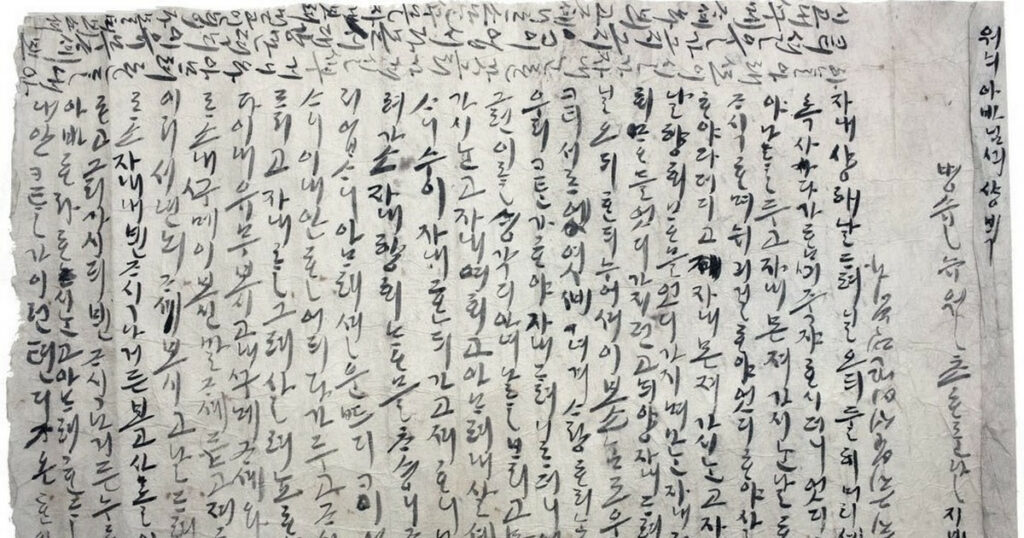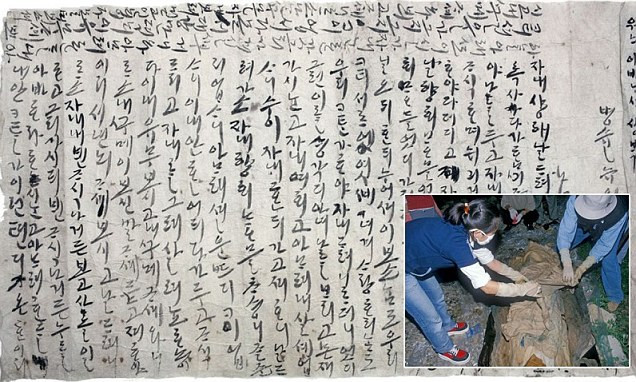A Poignant Discovery

In 1998, a remarkable discovery was made in Andong, South Korea – a centuries-old love letter, found alongside the mummified remains of Eung-Tae Lee, a man from the 16th-century Joseon Dynasty. This ancient missive, written by Lee’s grieving widow, offers a heart-wrenching glimpse into the depths of love, loss, and enduring devotion that transcends time.
A Widow’s Lament
The Raw Emotion of Grief

The letter begins with the heartbreaking salutation, “To Won’s Father,” a tender reference to their young son. The widow pours out her sorrow, lamenting her husband’s untimely death and expressing her fervent wish to reunite with him in the afterlife. Her words are filled with a raw emotional intensity that speaks to the universal human experience of losing a loved one.
“How could you pass away without me? Who should I and our little boy listen to and how should we live? How could you go ahead of me?”
A Love Beyond Compare
The widow’s words paint a vivid picture of the profound love she shared with her husband, a bond so deep that she questions if anyone could truly understand its depth. Their affection for one another was a constant source of wonder and cherishment, as she recounts his words:
“Dear, do other people cherish and love each other like we do? Are they really like us?”
A Plea for Reunion
In her anguish, the widow pleads for her husband to appear in her dreams, believing it will provide solace and a chance to communicate with him once more. Her desperation to be reunited with him is palpable, as she declares her inability to live without him and her desire to join him in the afterlife.
“Please look at this letter and tell me in detail in my dreams. Because I want to listen to your saying in detail in my dreams, I write this letter and put it in.”
A Window into the Past
Cultural and Spiritual Beliefs
The letter offers invaluable insights into the cultural and spiritual beliefs of 16th-century Korea. The widow’s expressions of devotion and grief align with Confucian ideals of loyalty and filial piety, while her longing to reunite with her husband in the afterlife highlights the prevalent spiritual beliefs of the time.
A Timeless Love Story
The discovery of this ancient love letter has touched hearts around the world, reminding us of the enduring nature of love and the deep emotional bonds that connect people across time and space. Unlike the scripted romances of contemporary media, this letter reveals a genuine, heartfelt narrative of love and loss that is deeply human and profoundly moving. It serves as a poignant reminder that the deepest emotions are universal and eternal, transcending the boundaries of time and culture.
In this 500-year-old Korean love letter, we find a story that is deeper than any fictional tale, resonating with an authenticity and emotional depth that speaks to the core of the human experience. It is a timeless testament to the enduring power of love and the human heart.

